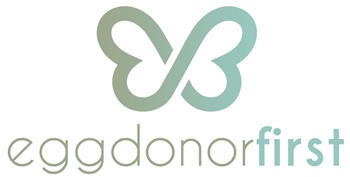For women considering egg donation, one of the most common questions is whether their baby will share any of their characteristics. While the baby’s DNA will come from the egg donor and sperm provider, emerging research in epigenetics reveals that the birth mother plays a crucial role in their baby’s development that goes far beyond genetic inheritance.
Understanding Epigenetics in Donor Egg Pregnancy
Epigenetics is the science of how environmental factors influence gene expression without changing the DNA sequence itself. Think of DNA as hardware and epigenetics as the software that provides instructions for how that hardware should function. During pregnancy, your body provides this vital “software” through the uterine environment, influencing numerous aspects of your baby’s development.
The Power of the Prenatal Environment
The Crucial Prenatal Window
The time a baby spends in the uterus represents the most significant period for human development. Recent research has revealed that the uterus is far more than just an incubator. Instead, it’s an active, dynamic environment that shapes:
- Brain development
- Metabolic functions
- Immune system strength
- Overall health outcomes
How Your Body Influences Your Baby
The prenatal environment acts as a communication channel between mother and baby, preparing the child for the outside world. This influence occurs through several mechanisms:
- DNA methylation (the most studied form of epigenetic control)
- Transfer of hormones through the placenta
- Maternal immune system interactions
- Nutrient delivery and metabolism
Real-World Evidence: The Dutch Hunger Winter Study
One of the most compelling examples of maternal influence comes from research on the Dutch Hunger Winter of 1944-1945. This study revealed how powerful the uterine environment can be:
- Children born to mothers who experienced severe food shortages showed different methylation profiles
- These individuals had higher rates of obesity and diabetes in adulthood
- The mother’s environmental conditions literally “programmed” their children’s future health outcomes
Psychological Influence on Baby’s Development
While you probably won’t endure conditions as stressful as the Dutch Hunger Winter during your pregnancy, the stressors in your daily life can still have an impact on your baby.
Stress Response
- Maternal cortisol (stress hormone) can cross the placenta
- Elevated cortisol levels can affect fetal brain development
- Stress can trigger inflammatory responses that reach the baby
Developmental Impact
Maternal stress can influence:
- Cognitive development
- Emotional regulation
- Behavioral patterns
- Physical health outcomes
Creating an Optimal Environment for Your Baby
While you can’t control genetic inheritance when using donor eggs, you can optimize your baby’s developmental environment:
Physical Health
- Maintain a healthy weight
- Follow a nutritious diet
- Take prenatal vitamins
- Avoid alcohol and monitor caffeine intake
- Exercise appropriately
Mental Health
- Practice stress management techniques
- Seek support when needed
- Engage in relaxation activities
- Maintain positive relationships
Will the Baby Look Like Me?
While physical characteristics are inherited through DNA from the egg donor and sperm provider, it’s important to remember:
- Even in natural conception, children don’t always look like their parents
- Genetic expression is complex and unpredictable
- Your role as the birth mother significantly influences your baby’s development
- The bond between mother and child goes far beyond physical appearance
The Truth About Maternal Bonding
Motherhood begins in the womb, not in genetics. Your body will:
- Provide crucial developmental guidance
- Shape your baby’s future health
- Create a unique biological connection
- Foster an emotional bond that starts during pregnancy
Moving Forward with Egg Donation
Understanding epigenetics can help you appreciate your vital role as the birth mother:
- Your body provides the essential environment for your baby’s development
- Your lifestyle choices directly impact your child’s future health
- Your emotional connection with your baby begins during pregnancy
- Your influence as a mother extends far beyond genetic contribution
Remember that every pregnancy, whether through egg donation or not, is unique. Focus on creating the healthiest possible environment for your developing baby, and trust in the remarkable ability of your body to nurture and shape your child’s development.
Making the decision to use donor eggs is a significant step in your journey to parenthood. Understanding the science of epigenetics can help you appreciate the profound influence you’ll have on your baby’s development, regardless of genetic inheritance. Your role as the birth mother is irreplaceable and begins long before you hold your baby in your arms.





